By Stacey Flores Chandler, Reference Archivist
Archivists at the John F. Kennedy Presidential Library have spent a lot of time working remotely since our building closed in March 2020 – and if you’re wondering what archivists do without full-time access to archives, you’re not alone! Luckily, we’ve been able to move a lot of our work online, from answering questions and transcribing oral history interviews, to teaching virtual classes and sending scans to researchers around the world. But we’ve also been busy tackling our textual “digitization backlog,” made up of thousands of documents we’ve scanned, but hadn’t put through the more time-consuming cataloging process that lets us post them online for public access.
To catalog our backlog, archivists run through a checklist that includes reading every scanned page, applying search terms, and writing descriptions and technical metadata for every folder. We’ve been able to prioritize this work in the past year, and we’ve cataloged and posted 1,964 folders holding 218,239 pages in that time. Spanning 15 collections, the newly-online pages give an inside look at a teenage JFK’s thoughts as he recovered from illnesses; the interactions between the White House and legendary designer Ann Lowe; a doctor’s accounts of his attempts to treat the President’s chronic back pain; recollections from civil rights icons; the research of Justice Department lawyers as they built cases against Jimmy Hoffa; and more. We’re excited to share some of this newly-available material with you!
Kirk Lemoyne “Lem” Billings Personal Papers: Fully Digitized
Lem Billings and John F. Kennedy met as teenagers at their Connecticut prep school and remained lifelong friends. Billings kept the letters JFK wrote to him between 1934 and 1939, and he donated the entire collection to the Library in the 1970s.
![Dear Lem:
Have you my pen - also time date cards from Harry's.
Am playing on the Junior Varsity - we have a game Friday. Will try to make the connection and will let you know.
Am coming down this weekend. I have [illegible] - try to make it -
Best
Ken](http://jfk.blogs.archives.gov/wp-content/uploads/sites/12/2021/03/KLBPP-001-003-p0015-e1615920315504.jpg)
Bernard L. Boutin Personal Papers: Partially Digitized
Bernard Boutin was a New Hampshire politician, 1960 Presidential campaign worker, leader at the federal General Services Administration (GSA) from 1961 to 1964, and Deputy Director of the Office of Economic Opportunity from 1965 to 1968. Boutin’s collection documents his work in all of these roles, with a focus on his GSA leadership – including the agency’s planning for the John F. Kennedy Presidential Library and efforts to send much of the President’s Oval Office book collection to our archives.
Click to browse the Bernard Boutin Personal Papers
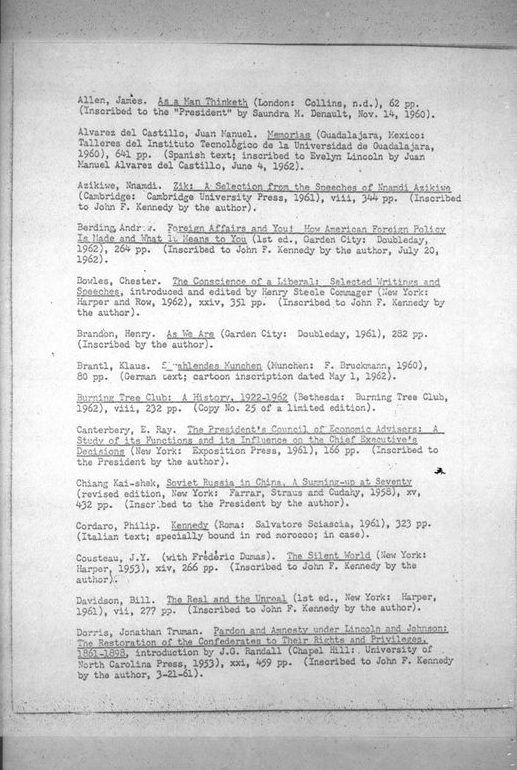
Clark Clifford Personal Papers: partially Digitized
As a lawyer and advisor to the Kennedy family, Clark Clifford worked on a surprising range of issues, from the Presidential transition of 1960-1961 and steel price negotiations in 1962, to handling questions about the authorship of Profiles in Courage. In 1961, Clifford was also involved in communications with Ann Lowe, the iconic fashion designer who created Jacqueline Kennedy’s wedding dress. Lowe wrote to Mrs. Kennedy after a reporter referred to Lowe only as “a colored woman dressmaker, not the haute couture” in an article about the First Lady, and her correspondence with Boutin on the issue is captured in the collection.
Click to browse the Clark Clifford Personal Papers (all microfilm boxes digitized)
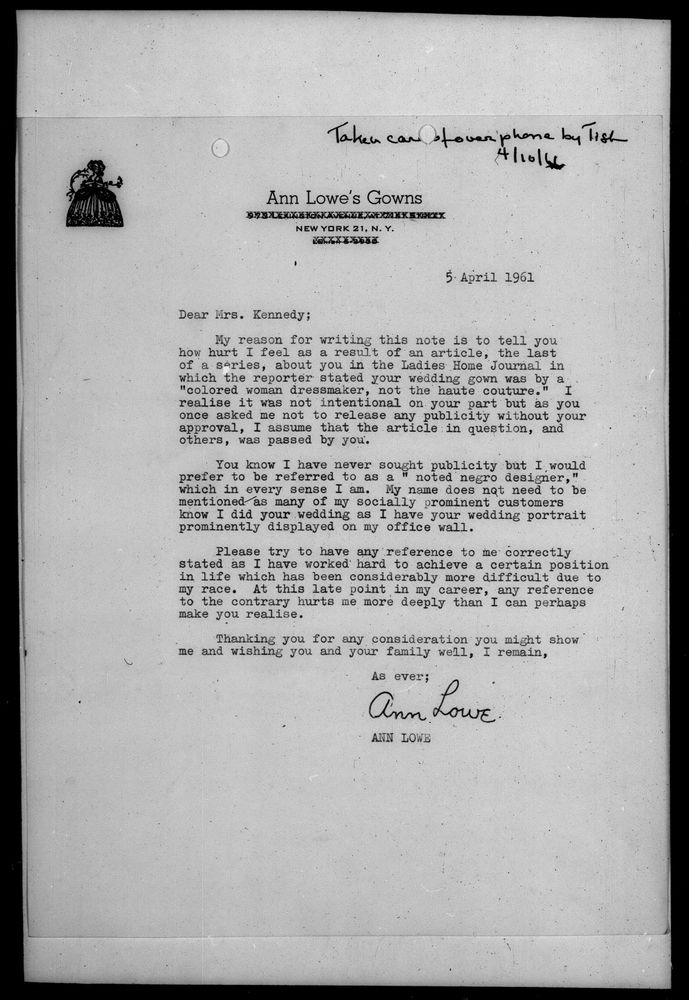
Patrick J. Kennedy Personal Papers: Partially Digitized
This collection consists of one bound volume that holds the personal correspondence of Patrick J. Kennedy, Massachusetts politician and John F. Kennedy’s paternal grandfather. The volume and the papers inside it are so fragile that they have to be digitized before archivists can finish processing and describing the collection – but the letters we’ve been able to work on so far are now posted online!
Click to browse the Patrick J. Kennedy Personal Papers
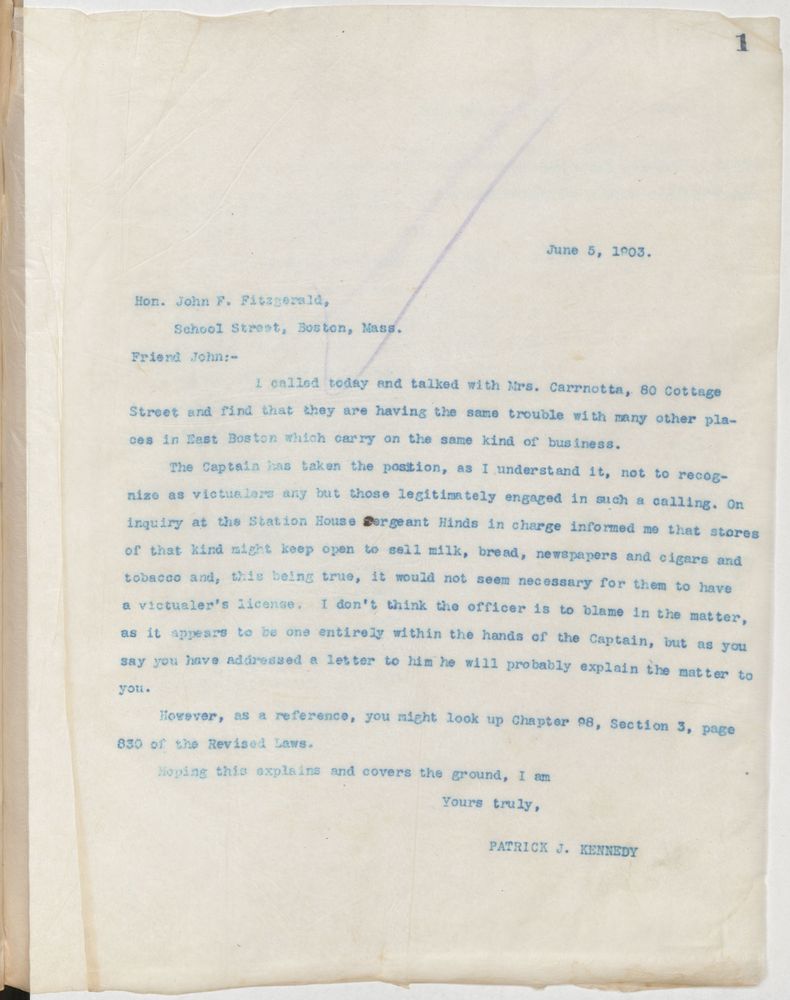
Hans Kraus Personal Papers: Fully Digitized
Dr. Hans Kraus, an orthopedic surgeon known for researching the connection between exercise and physical health, first visited the White House in 1961 to evaluate and help treat JFK’s chronic back pain. Kraus prescribed a series of exercises for the President, and his collection documents JFK’s treatment regimen and progress in reports through 1963.
Click to browse the Hans Kraus Personal Papers
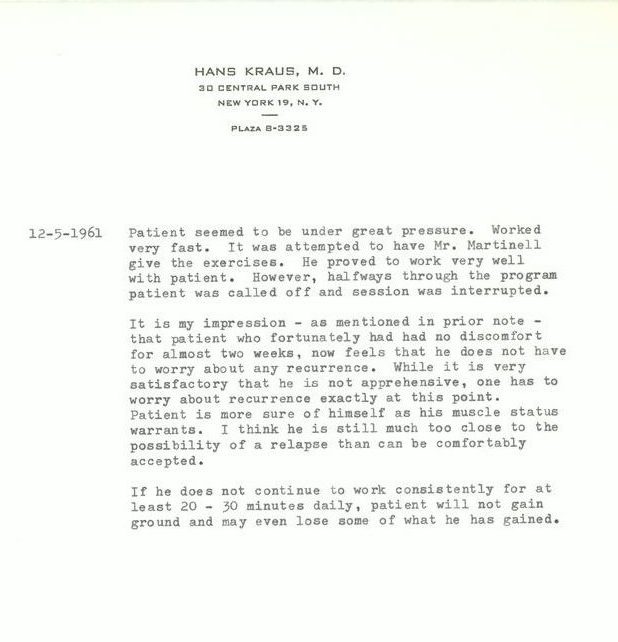
Max Millikan Personal Papers: Fully Digitized
Max Millikan was an economist and Director of the Center for International Relations at MIT, and an advisor to John F. Kennedy during the Presidential transition of 1960-1961. Millikan’s papers include his December 1960 report “Memorandum on an International Youth Service,” an exploration of what would eventually become the United States Peace Corps.
Click to browse the Max Millikan Personal Papers
Larry O’Brien Personal Papers, JFK Campaign Series: Fully Digitized
As the Director of Organization for JFK’s 1960 Presidential campaign, Lawrence F. “Larry” O’Brien handled the intricacies of running a campaign from primaries through the general election. This series includes correspondence with the public, campaign workers, and politicians; campaign schedules and event details; campaign memorabilia; planning and strategy documents; and post-election materials related to positions in the new administration.
Click to browse the Lawrence F. O’Brien Personal Papers, JFK Campaign Series (Boxes 1-19)
![Publication cover:
Student Young Democratic Guide to Victory
Kennedy-Johnson Victory Manual
[with image of John F. Kennedy looking to the left of the frame and smiling]](https://jfk.blogs.archives.gov/wp-content/uploads/sites/12/2021/03/LOBPP-018-004-p0001.jpg)
National Security Files, McGeorge Bundy Correspondence Series: Fully Digitized
One of our most popular collections, the National Security Files, is the primary record of the Kennedy administration’s approach to foreign policy and national security. The McGeorge Bundy Correspondence Series within this collection captures the outgoing correspondence and other working papers of Bundy, JFK’s National Security Advisor, including his memos offering information and advice to the President through his entire tenure. This series joins other digitized series in the collection, including Series 5: Subjects and Series 6: Meetings and Memoranda.
Click to browse the National Security Files, McGeorge Bundy Correspondence Series (Boxes 398-405)
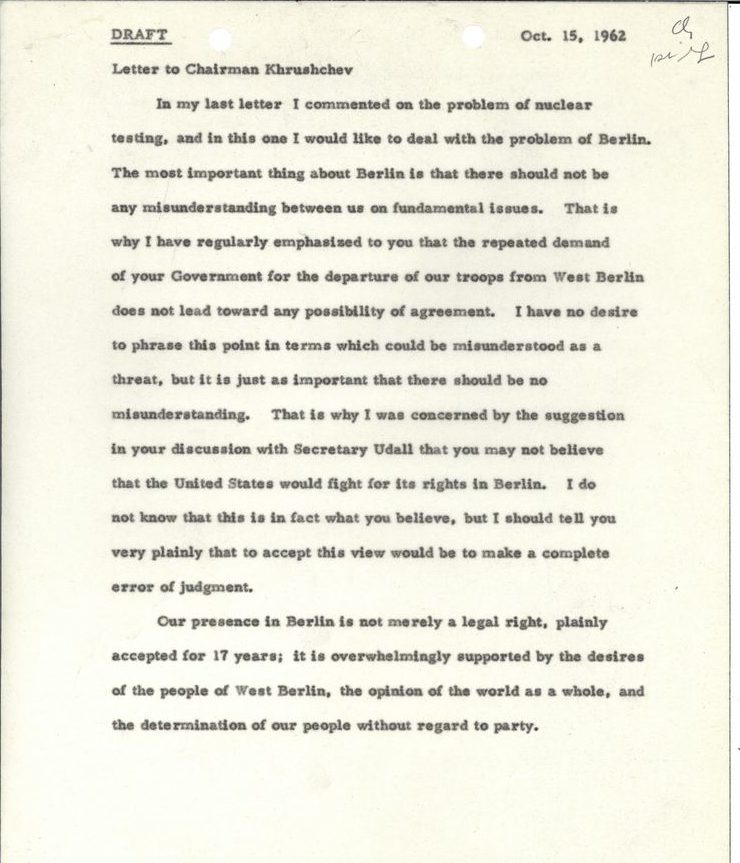
Pedro Sanjuan Personal Papers: Fully Digitized
Pedro Sanjuan took charge of the State Department’s Special Protocol Services office during the Kennedy administration, and led investigations into the racist discrimination that Black and Asian diplomats faced when they came to Washington D.C. You can read more about Sanjuan’s life and work in our blog post and through his collection, which documents his advocacy at the State Department.
Click to browse the Pedro Sanjuan Personal Papers
![Briefing for the Undersecretary on African Diplomats in Washington
June 2 1961
1. General Attitude of Africans toward Discrimination
Numerous African diplomats stationed in Washington have spoken to us about the impression racial discrimination made on them when they first arrived in the United States.
Educated Africans know racial discrimination exists in the southern part of the United States. However, they seldom suspect, until after they arrive in the United States, that racial discrimination is practiced openly in such cities as New York and Washington. Since Washington is our Capital, most African diplomats feel that our Government tacitly condones the vestiges of segregation that still exist in the District of Columbia. It is hard to convince African diplomats that the Administration is not at all complacent about this problem. They know that Washington is run by the Federal Government, that the Commissioners of the District are appointed by the President, that the President is the leader of the majority party in Congress, and that Congress can pass laws to govern the District of Columbia.
African diplomats do not feel that they must comply with any of the local customs that deprive Americans of their constitutional and human rights. As diplomats and honored guests Africans feel that they have the same rights and privileges as all other... [end of page]](http://jfk.blogs.archives.gov/wp-content/uploads/sites/12/2021/03/PASPP-001-019-p0001-e1615998878700.jpg)
Jean Stein Personal Papers: Partially Digitized
For her 1970 book American Journey: The Times of Robert Kennedy, Jean Stein interviewed over 300 people – including celebrities, politicians, and activists – about their lives, work, and impressions of Robert F. Kennedy. Because her interviewees didn’t necessarily know that Stein would donate their interviews to an archives for everyone to read, archivists have only opened the interviews of people who have since either granted permission or passed away. Over the past year, we’ve been digitizing interviews as we open them – including Stein’s interviews of famed activists César Chávez, Marian Wright Edelman, and Bayard Rustin.
Click to browse the Jean Stein Personal Papers
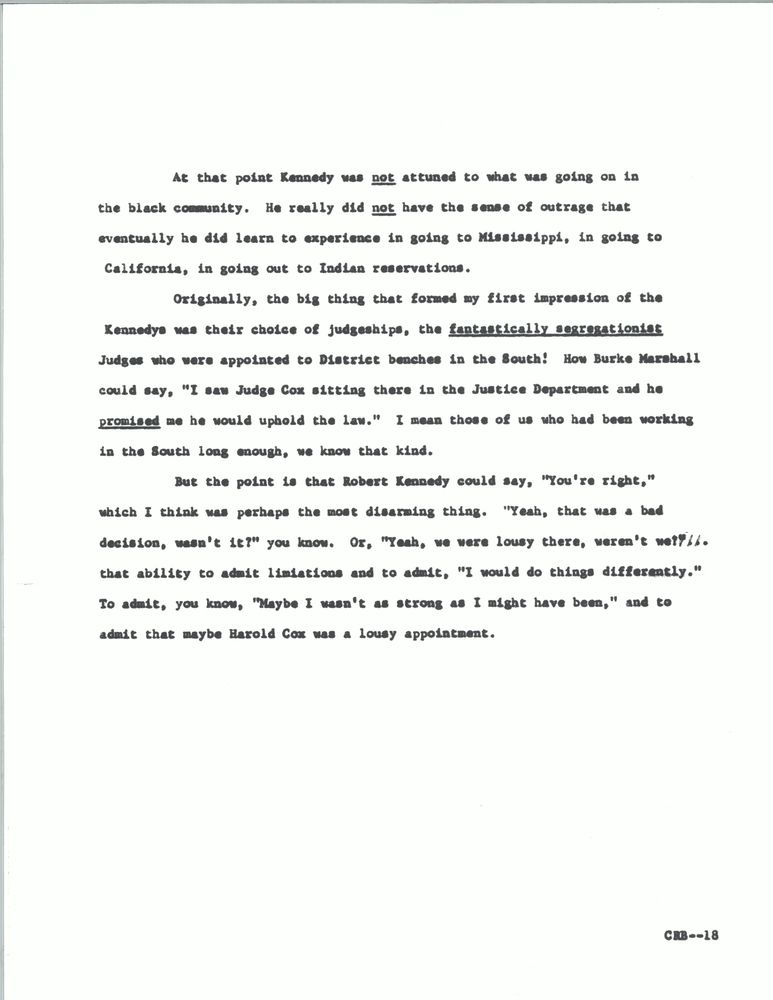
U.S. Department of Justice Records, Criminal Division Series: Partially Digitized
Most of the microfilm records in this series document federal lawsuits prosecuted by the DOJ’s Criminal Division on charges like organized crime and racketeering. The documents provide an inside look as the government built its case in these trials, including U.S. v. James R. “Jimmy” Hoffa and Sun Valley, Inc.
Click to browse the DOJ Records, Criminal Division Series (Boxes MF151-MF716A)
![Q. What is the nature of that particular organization, the Pension Fund?
A. It is a fund to which employees contribute and set aside under a trust for the purpose of pensioning off drivers at age 60, 20 years of service, at $135.00 a month.
Q. You are one of the Trustees of that fund?
A. That's right.
Q. Do you have employers and trustees?
A. Yes.
Q. How many are employers?
A. I think eight and eight.
Q. Eight for the employers and eight for the union?
A. Yes.
Q. How long have you been a trustee for that Pension Fund?
A. I think it started about '55 if I am not mistaken; somewhere around there.
Q. Do you have a Chairman of the Trustees?
A. Alternates each meeting.
Q. Are you authorized to take any action on behalf of the Pension Fund that is not concurred in by all of the trustees?
A. Occasionally, yes.
Q. Of what type?
A. Signing of checks. After a tentative approval has been made by the trustees, we have a formula and the formula then once being met both on the appraisal and accounting, legal papers are drafted. We can then sign them...[end of page].](https://jfk.blogs.archives.gov/wp-content/uploads/sites/12/2021/03/USDJ-MF324-001-p0019.jpg)
AND MORE!
In addition to digitizing entire collections and series, we’ve published a lot of individual items and folders across many different collections, including:
- Nearly 200 oral history interview recordings from the Returned Peace Corps Volunteer Collection;
- Over twenty folders related to Profiles in Courage, the Cuban Missile Crisis, and other topics in the Theodore Sorensen Personal Papers;
- Dozens of folders of constituent letters about JFK’s life, hobbies, and favorite things in the White House Central Subject Files, President series;
- Multiple rolls of microfilm from the U.S. General Services Administration Records;
- And hundreds of transcript pages capturing meetings between icons of women’s history from the President’s Commission on the Status of Women Records.
To find digitized materials in these collections, just look for folder titles that appear as links in the finding aid, and click on them to access all the documents in each folder.
We’re also working on bringing you even more digitized materials from the White House Central Subject Files, the National Security Files, and other collections. Stay tuned for more updates – and happy browsing!
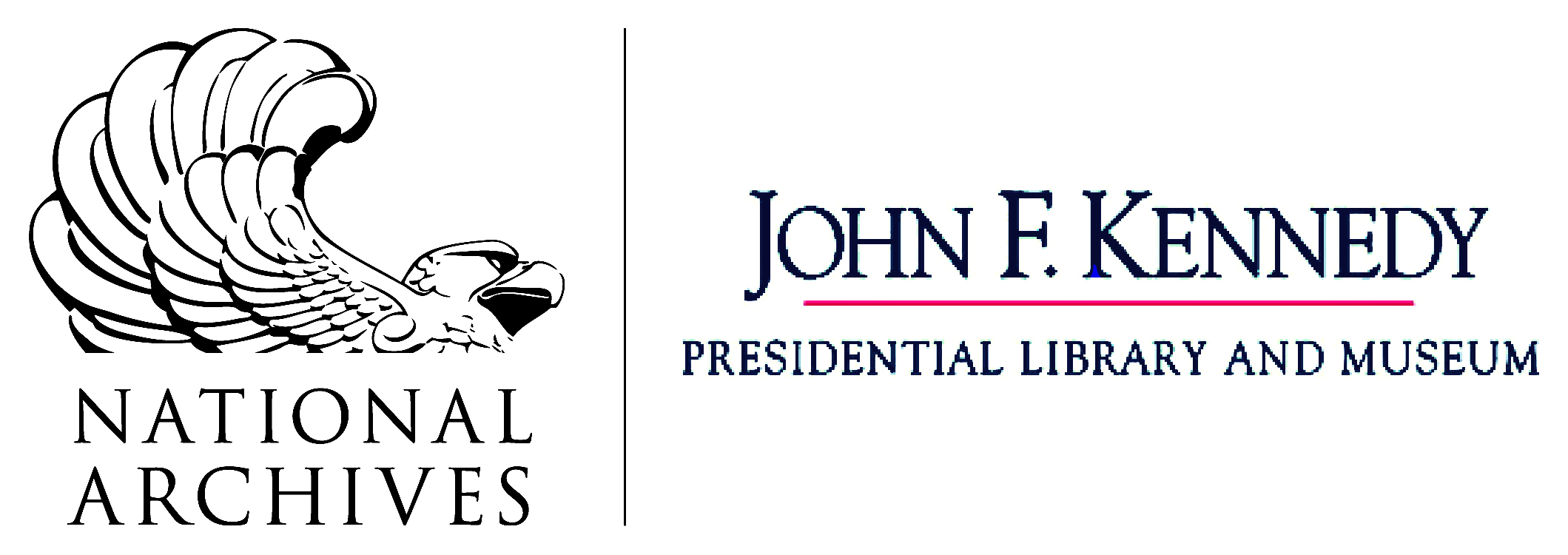
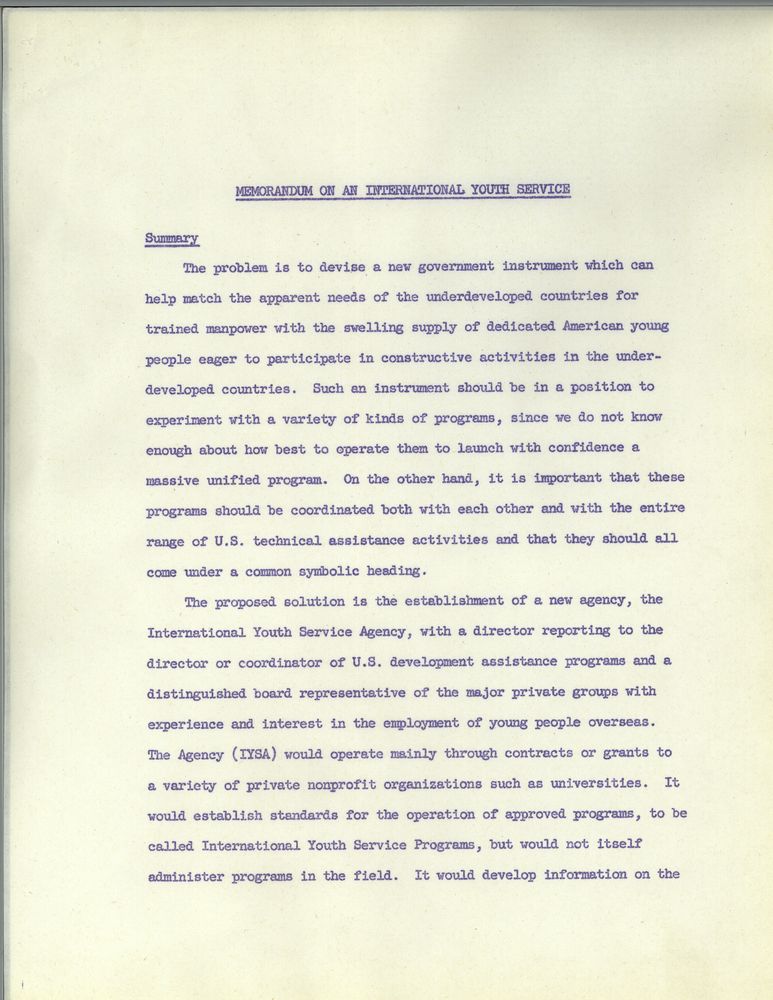
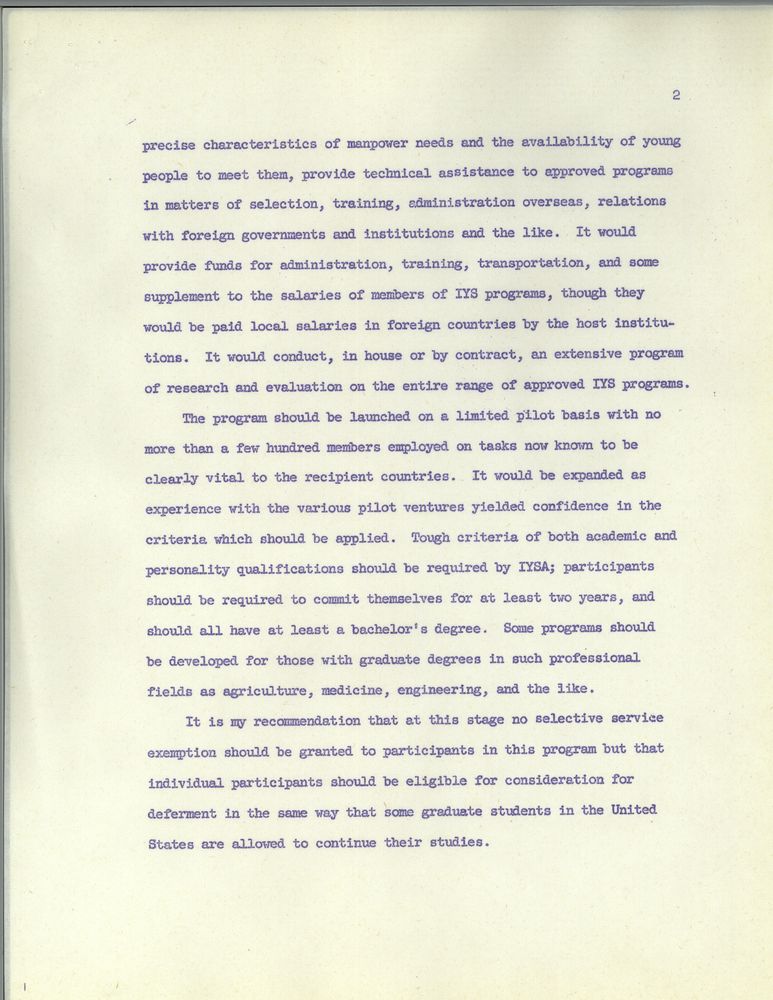
Do you have any of Dick Tuck’s papers from the 1960 campaign?
yes sir!!!!!!! great content
Hi there,
We have a letter to my grandfather from JFK dated January 12, 1961. Can someone reach out and let us know how to get it archived? Not sure of the process.
Thank you!
Hi, Where can I find the the Speech Transcription and Letters written by President John F Kennedy which are digitalized.